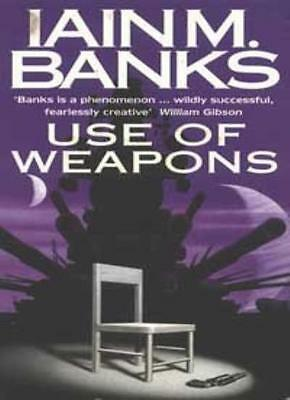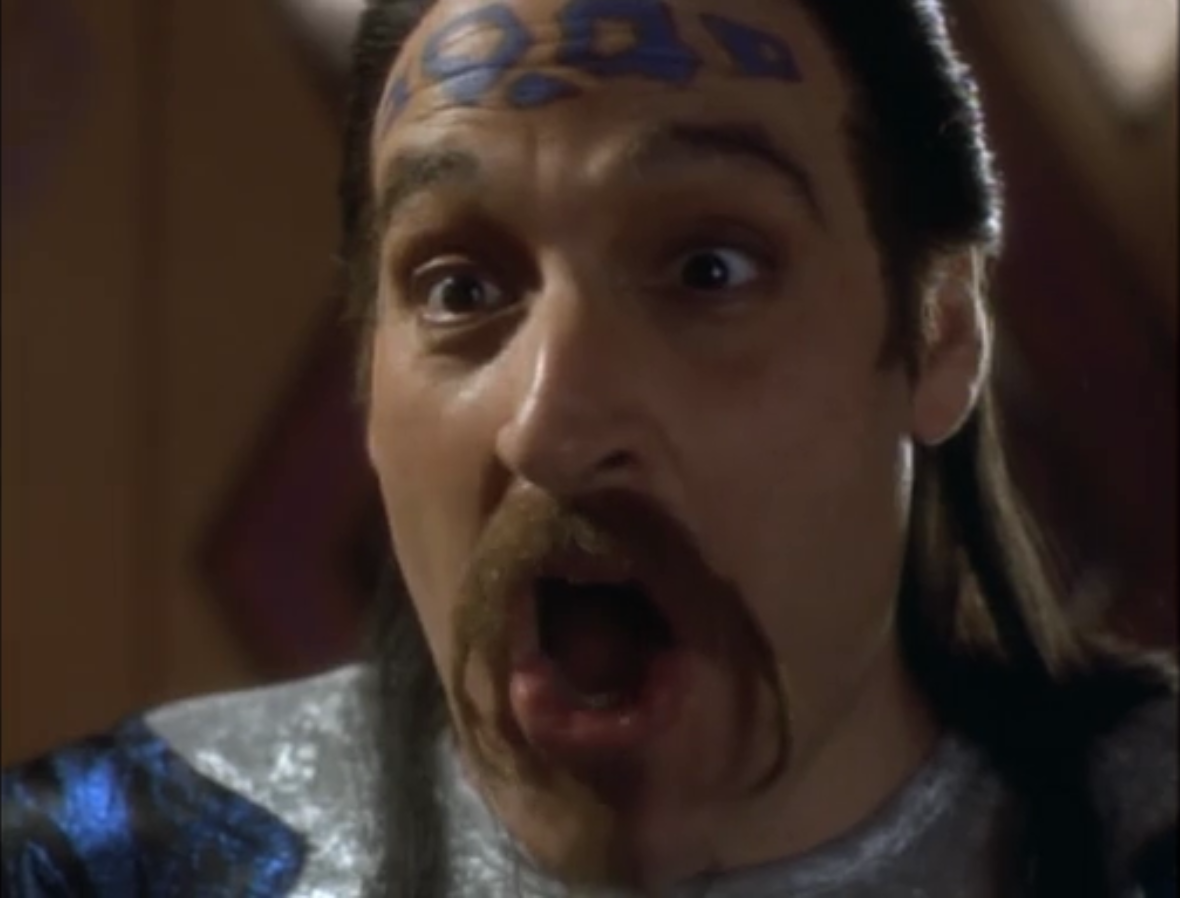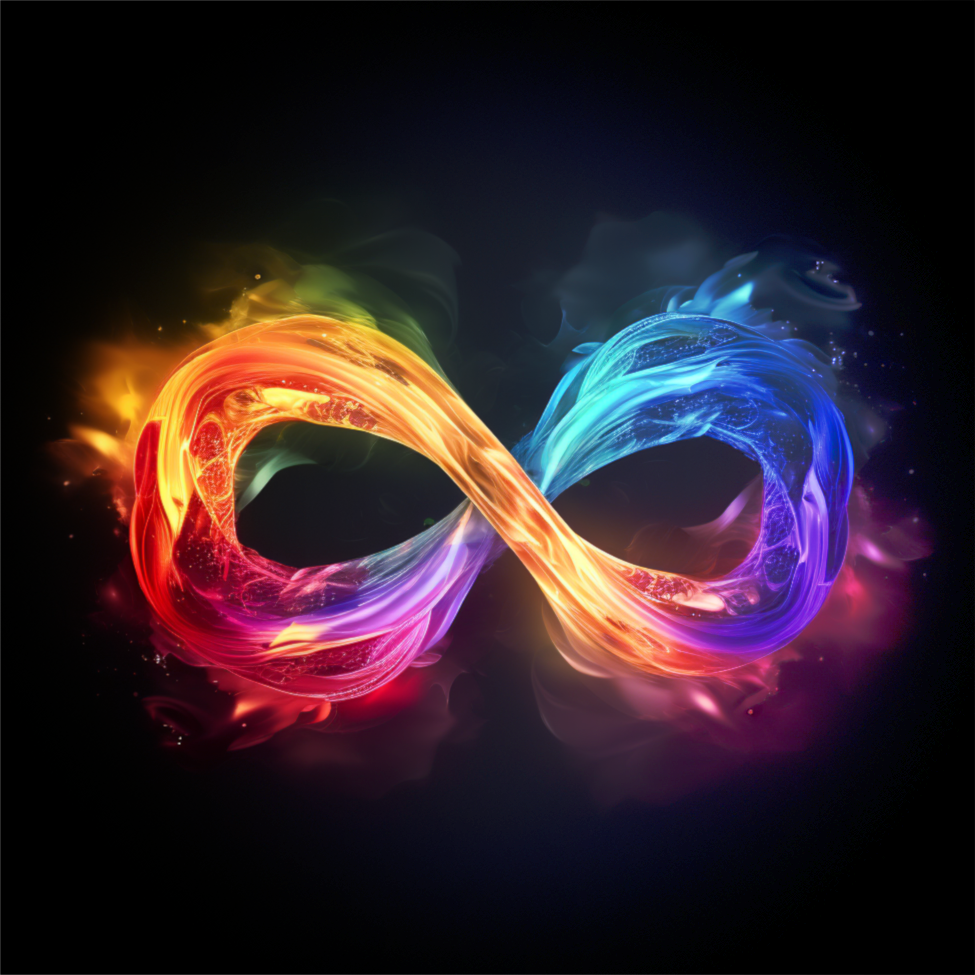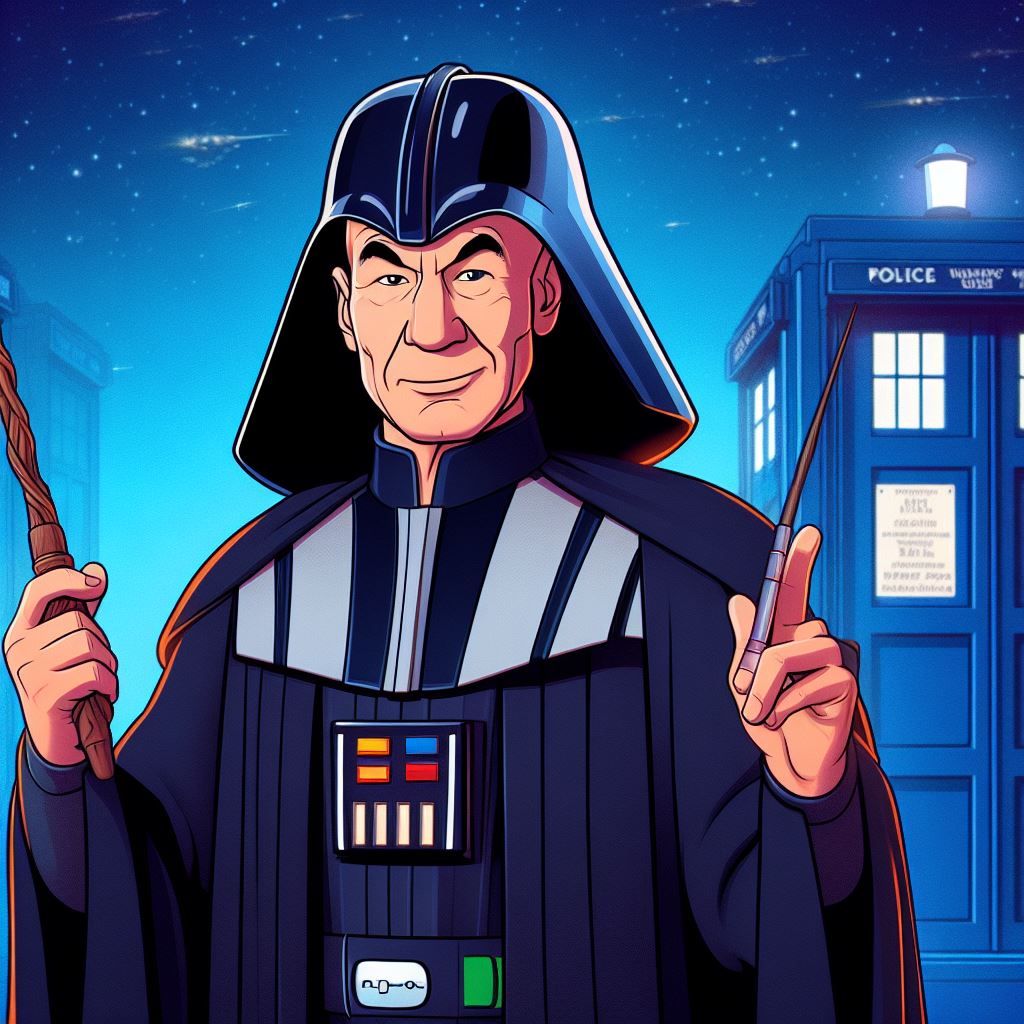I haven’t read all of Iain M. Banks The Culture series, but I highly recommend Use of Weapons. I’ve read it three times, and it gets better each time.
It’s not a bad introduction to The Culture, but please feel free to recommend another novel to start with, or your favourite. I’ve read this, Look to Windward, Consider Phlebas, and The Player of Games. As I recall, Look to Windward has some good descriptions of a large Culture ship.
I’d also love to hear your favourite ship name.
Edit: I see I added The to the title…
I think my all time favourite is Excession, most re-read one anyways.
In general, I love all the ship names, as they hint at the ship’s personality. My favourites however are the OU/offensive unit ones like “Frank Exchange of Views” and such.
“Falling Outside The Normal Moral Constraints” is another in that vein I liked
I think I’m with you, Excession was the first book that made the Culture series universe feel “big” with lots of characters, factions, races, etc all getting involved. I thought Matter and Surface Detail were really good for the same reasons.
Another vote for Excession. I miss Iain M Banks.
The ship/mind name with the most emotional attachment is bound to be Bora Horza Gobuchul, though. Oh boy, that book was a rollercoaster!
Consider Phlebas if anyone needs it.
Awesome story, and having the first culture novel centre on a character that hates everything about the culture is amazing.
Excession got me to buy a Kindle. I was so into the book that I then binge-read it on a tiny iPhone 3G screen overnight instead of waiting for the Kindle. I of course read it again on the Kindle when it arrived the day after…
“it’s my party and I’ll sing if I want to”
I’ve gone through (I think) the whole Culture series of Banks. Weirdly enough, they got recommended to me by a barber when I was ~15yrs. Sweet guy, he had no tv & read a shit tonne. I love the philosophical and/or societal talking points overarching each of Banks book most, I’m awful at recalling the actual stories. There’s identity crisis in Consider Phlebas, purpose in Player of Games, excession in the aptly named Excession, the list goes on really. Plus hyper sci-fi, so a bunch of wobbly physics and warfare situations going on. If you can’t tell, I love these books lol
Most places recommend The Player of Games for the first novel to read.
But go on take up a nice white chair and read Use of Weapons.
I think both recommendations ignore why Banks wrote from Horza’s point of view to introduce the series in Consider Phlebas.
Favorite ship name is an impossible choice. There’s so many and they’re all so good.
The one that most easily comes to mind is the Mistake Not… but you’ll have to read Hydrogen Sonata to hear the rest of the name and understand why it’s so good (I ain’t spoiling that reveal).
But in terms of just random names that get offhand mentioned, I always found Prosthetic Conscience delightful.
I love Use of Weapons. But it is one of the darker ones … the Chairmaker …
I’m not entirely set on it, but I think I’d recommend The Hydrogen Sonata as an entry into the series.
That’s odd as Hydrogen Sonata felt very much like an ending to me. I know Banks didn’t know it would be his last Culture book at the time, but the themes are very much leaning that way.
Oh he didn’t plan it? that’s nuts.
It felt very “bring it to a close” to me.
Thanks. Always up for Bank lore.
It has an “end theme”, not of the Culture, though.
I have read them all, and find them all excellent. I wouldn’t recommend Use of Weapons as an introductory book for a new reader, though. It is rather dark, and it may put off some people. I think The Player of Games would work better, and give a new reader a better introduction of what the ethos of the Culture is, and what to expect (to some extent…) from the other books.
Unlike others, I did’t like Consider Phlebas that much, when compared with other (IMO) stronger Culture books.
I’m a bigger defender than most of Consider Phlebas than most, but it’s a product of age.
If you grew up with Star Trek and Neuromancer, the first book kind of splits those wickets on utopia/dystopia neatly in a way I don’t think holds up as well afterwards.
Player of games is a much neater intro, but the ambiguity of the first book felt intentional, and it’s always interesting to me to see peoples reactions to that called shot.
I must have read that description of ‘damage’ a dozen times.
That’s precisely the reason I liked it so much though
Favourite ship names: Apart from the obvious - the “Mistake Not My Current State Of Joshing Gentle Peevishness For The Awesome And Terrible Majesty Of The Towering Seas Of Ire That Are Themselves The Mere Milquetoast Shallows Fringing My Vast Oceans Of Wrath”, I like the ship names that are references to other ship names, including “Me, I’m Counting” and “I Blame Your Mother”
I just started reading the series. Started just with the first one. Really enjoyed it, it reads like an action movie. Reading the second one. Starts a bit slow, but it’s starting to suck me in as well. (don’t remember the names, the books have such weird names :))
If I end up enjoying it as well, I’ll just keep going probably. This post makes me want to read them all :)
2 is actually really good, it goes downhill for me personally after that till maybe hydrogen.
I quite like the later novels, both Surface Detail and Hydrogen Sonata are fresher in my mind. But I do remember enjoying Player of Games and Excession as well. Inversions was probably my least enjoyed Culture book.
I think you can really jump in any where as they’re all mostly seperate stories.
I wouldn’t recommend Inversions before any of the others as a lot of stuff we’re meant to be in on that a lot of the cast aren’t is based on information form the other books, like how Special Circumstances operate and such.
I agree with that. I meant I didn’t really like it as much as the rest of the Culture books. I read them in published order, so I was familiar by the time I got to Inversions.
I love all the culture books. One of the few SF works that has a mostly positive view of the future and the AIs are (mostly) benevolent.
Good book, but I wouldn’t call it a good introduction to The Culture. The batshit narrative chronology makes it pretty unapproachable. The Player of Games is much more straightforward and accessible. Consider Phlebas is also more straightforward, but it tries to do too much or something and ends up weirdly disjointed at times. Still, either of those would make a better starting point. Really though, The Culture books (that I’ve read which isn’t all of them) are more episodic than serial. You can start with any one of them.
Excession is a good start
My favorite in the series was probably Look to Windward, but you can start the series just about anywhere. Favorite ship is definitely Funny, It Worked Last Time…
Ha! Just finished Player of Games yesterday and bought Use of Weapons. Trying to decide whether to continue with Culture or mix things up and start with the first Wheel of Time book.
Either way I’ll get to it, and the rest, because the first two I thought were excellent reads and I really like Banks’ writing.
A word of dissent, I’ve read Use of Weapons and Player of Games and I believe one more culture book and I’ve found them very forgettable. I wanted to jump on the hype train, but it never clicked.
I’ve also read The Wasp Factory and The Song of Stone. The last one stayed in my memory (even though it’s the first one I’ve read) and for me the only one worth the read. (not sci-fi, but some kind of alternate reality).
Memorability per se does not interest me. I have read all the Culture novels and like them for the immersive experience and story telling, but I have since forgotten most of the plots and characters. So what? I can always read them again.
If the book is interesting, I will remember something - good world building, plot twists, interesting characters or ideas, atmosphere, how the book made me feel… But from the culture books there wasn’t much worth remembering. The feeling I have associated with reading it is “meh”.
I’m right there with you. I heard all the hype, thought I’d give it a go and found nothing more then a mediocre series of space operas. Clearly heavily inspired by star trek, taking many of its utopian/distopian concepts to the extreme.
Not bad but very meh.
Interesting; I’ve read the whole series and am a Star Trek fan but to me they’re nothing alike.
The Culture series does show a utopian future, but one where the post-scarcity era feels more realistic to me. In an era where everyone has the wealth of gods at their fingertips, the whole shape of civilization is completely changed. There is no government, there is not structure, instead there are attempts at consensus between the AIs and the Humans. And the AIs are all powerful, meaning the Humans are redundant and have to find meaning in life.
Star Trek on the other hand shows a familiar morality and structrue we’re used to sans capitalism (supposedly). It has a very american view point in that these are the good guys, spreading the benefits of their society, knowledge and wisdom to the rest of the galaxy. As much as I like it, it’s pretty imperialistic in it’s way, with all the other species being shown as flawed compared to the enlightened federation. Individual episodes and stories can be extremely interesting, but the overall Star Trek universe is basically good guys vs bad guys and pretty simplistic.
I find the Culture series refreshing in comparison to something like Star Trek; it’s more willing to be morally ambiguous and present the Culture as both a Utopia but also hints of a Dystopia. The humans also have an illusion of freedom and self determination; ultimately they’re entirely dependent on the AIs who at times act like benevolent owners with pets. The stories explore those dynamics as well as the dynamics woith civilizations outside the culture.
Apart from the fact that every utopia has some aspect of dystopia (IMHO from human nature), I think the Culture series is quite utopistic.
I think it fills a niche as pro-utopian series besides Star Trek in science fiction. There just aren’t that many works that start from the premise that post scarcity society can actually happen, or that there’s more of interest to the idea than their collapse.
Yeah I agree with you there. Dystopia, collapse, Humanity meeting it’s own hubris, or a few good people in an evil world - those ideas seem to fuel a lot of Sci-fi. AI is bad, and Robots are generally evil is another trope.
The Culture is refreshing in that it shows a utopia that feels like it could actually happen - AIs aren’t automaticlaly bad, but also post-scarcity really does mean something. So much Sci Fi tries to avoid the truth about post-scarcity as a concept; even in just our own Solar System there is immense wealth we can barely grasp the scale of, and with AI and Robotics the idea that humankind would be freed to a life of leisure, art and pursuit of invidual goals.
It all comes down to some fundamental questions which we as a civilization will have to answer: who “owns” an AI? Who owns a robot and it’s output? What is the point in captialism if AI and Robots can produce everything we need? Getting there may be a rocky road, but I think we really only have two end points: Utopia or complete collapse on the way. Anything in between doesn’t make much sense as a stable state when you consider meaning of a post-scarcity society or the technological singularity.
@BananaTrifleViolin @terminateprocess @severien @RupeThereItIs @DragonTypeWyvern
I used to read dystopian sci-fi but now I read the news.
Banks culture novels were a refreshing break from bleak ultra free market future nightmares that have become the sci-fi standard, especially in US sci-fi. I honestly can’t read any more of it.
Maybe we need more Scottish sci-fi
https://www.nls.uk/learning-zone/literature-and-language/science-fiction-in-scotland/IDK if you think the culture is a utopia you read different books then I did.
It’s a utopia in almost the same way the world of Brave New World is a utopia… Only if you look skin deep. Any deeper look it’s either same shit different day or perhaps even a distopian where human like species are effectively pets or zoo animals for AI.
I did NOT read the culture as something good.
Found the Horza.
It’s certainly an idea Banks addresses. Even most of the protagonists are those who have seen the life in the Culture and looked for something with meaning beyond existing in bliss, but I also think that The Culture is certainly the best option of those presented in the series.
If nothing else they’re so rabidly anarchist (in the non scare tactic use of the word) that anyone who does not like The Culture just, you know, leaves, and they aren’t even judged for it.
The Culture is a true utopia.
Humans are essentially pets of the AIs in The Culture, yes, but anyone is free to join or leave as they desire, and these “pets” have greater freedom than any human being who has ever lived.
A novel without conflict would be boring and useless, for example see (or preferably do not see) “Gentlemen Jole” by Lois McMaster Bujold, so of course the Culture novels show the subsections of society that deal with conflicts, but remember that those members of the Culture that are suffering are there by choice or by the actions of outsiders.
I think this touches on why I sometimes am reticent to recommend Bank’s’ sci-fi as it is not for everyone. Often I will try to lure people in with his fiction in particular “The crow road” and then convert them from there if they are digging his style.
Despite loving his sci-fi I think the crow road might be one of my favourite books of his all round.
It’s a good book, but it’s one of my least favourite of the culture series personally.
Please suggest my next read!
The Commonwealth Saga
Do excession.
What is your favourite of those I didn’t mention? Maybe I’ll read it next!
Probably Excession. Surface Detail and Player of Games are also amazing.
My list too! Excession in particular is a masterpiece.










